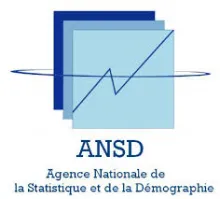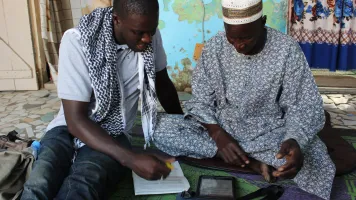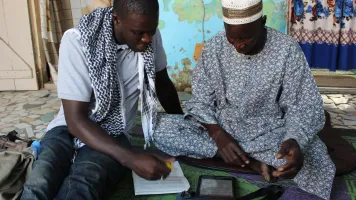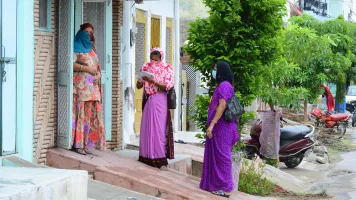The National Agency of Statistics and Demography of Senegal (ANSD, Agence Nationale de Statistique et de la Démographie) is responsible for the technical coordination of the National Statistical System. It is an administrative structure with legal personality and management autonomy and placed under the authority of the Minister of Statistics. In particular, the Agency is responsible for:
- To ensure the development and implementation of multiannual and annual programs of statistical activities to ensure the application of the methods, concepts, definitions, standards, classifications, and nomenclatures approved by the Technical Committee for Statistical Programs.
- To prepare the files to be submitted to the meetings of the National Statistical Council and the Technical Committee for Statistical Programs.
- To provide the secretariat and organization of the meetings of the National Statistical Council and the Technical Committee for Statistical Programs as well as its sectoral sub-committees.
- To carry out nationwide inventory surveys, in particular, the general censuses of the population and the censuses of enterprises.
- To produce the accounts of the nation.
- To monitor economic conditions and forecasts in relation to the service in charge of forecasting and economic conditions.
- To develop and manage the files of companies and localities.
- To develop economic, social, and demographic indicators.
- To centralize and disseminate summaries of statistical data produced by the entire National Statistical System.
- To foster the development of statistical sciences and applied economic research within its competence.
- To promote the training of specialized personnel for the operation of the national statistical information system by organizing appropriate training cycles, particularly within a school with a regional or subregional vocation integrated into the agency.
Priorities as a partner of the Global Partnership for Sustainable Development Data
The Government of Senegal is honoured to be part of the Champions Group and commits to strengthening the Global Partnership for Sustainable Development Data in harnessing the data revolution for sustainable development.
Leveraging and harnessing data will help us fast track our efforts to reach the status of an emerging economy. In Senegal, the data revolution is taking place. After putting in place a new strategic vision, aiming at positioning the country on the path of an emerging country, a couple of new initiatives have taken place. Those initiatives include, among others, the rebasing of the national accounts and the national employment survey, which will generate data on a trimestral basis. Efforts are underway to make the employment survey and the DHS survey permanent annual data collection and dissemination efforts. We commit to a country Roadmap/Action Plan, to the release of new data sets or other information resources to address sustainable development challenges, to improved collection and use of gender data, and other gaps in SDG data and to map country-level data gaps and announce new initiatives to fill those gaps.
A series of actions have been taken so far. Through a partnership between ANSD, SONATEL (ORANGE), PARIS21 (OECD), and the ONE Campaign, Senegal has released Call Details Records (CDR) from Senegal's main telephone company to the community of researchers to mine the data and construct socio-demographic indicators using those CDR. Over 60 countries, representing multiple research centers participated in the challenge using the released data. In the month of June, with the help of PARIS21 and ORANGE, researchers from the University of Buffalo New-York and the University of Berlin, award winners of the Data for Development (D4D) challenge, presented their papers in Dakar.
Another initiative involves PARIS21, in relation with ANSD and the authority in charge of investments in Senegal. That initiative deals with the “cartography of investments and their outcomes for a better decision-making process”. Results will be available by October 2015. Senegal is also involved in the rebasing of its national accounts to build a more accurate set of macro-economic indicators.




